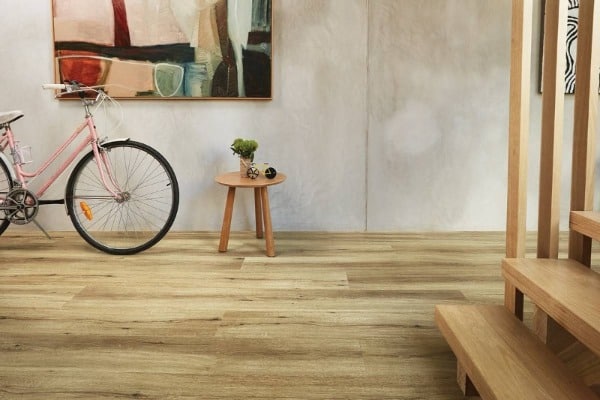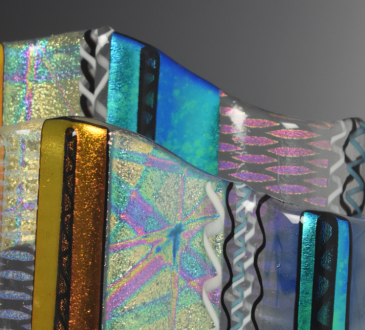
Hybrid flooring and traditional vinyl flooring are two widely favoured options due to their durability, water resistance, and low maintenance requirements. Although boasting equal strengths, these two alternatives present significant performance, construction, and installation variations. Property owners must then comprehend their differences to determine the most suitable option for their residential or commercial environment.
Discover the primary distinctions and benefits of hybrid flooring compared to traditional vinyl flooring.
Construction and Material Composition
Hybrid Flooring
Hybrid flooring is a multi-layered product that combines the best features of vinyl and laminate flooring. Its core layer is made from combined limestone and PVC, which gives it rigidity and stability. Above the core is a printed decorative layer, followed by a wear layer that protects against scratches, stains, and general wear and tear. The hybrid flooring installation process is simplified because of its rigid structure, which makes it more forgiving on uneven surfaces.
Traditional Vinyl Flooring
Traditional vinyl flooring is primarily composed of polyvinyl chloride (PVC) and includes fewer layers than hybrid flooring. The core is typically softer, which results in a more flexible and thinner product. This characteristic can make it harder to install on uneven surfaces and more prone to imperfections showing through from the subfloor. While it also has a wear layer for protection, traditional vinyl’s overall structure is less rigid than hybrid vinyl flooring.
Durability and Performance
Hybrid Flooring
The core difference in materials gives hybrid flooring a clear advantage in durability. Its rigid core can handle heavy foot traffic without denting or warping. Hybrid vinyl flooring is also 100% waterproof, making it suitable for areas prone to moisture, such as kitchens, bathrooms, and basements. Its multi-layer construction ensures that it stands up well against the rigours of daily use, making it a strong contender for high-traffic areas.
Traditional Vinyl Flooring
While traditional vinyl flooring is also durable, it doesn’t offer the same resistance level to heavy impacts or weight as hybrid flooring. It performs well for water resistance but can be more susceptible to damage from sharp objects or high heels due to its softer core. Traditional vinyl flooring is best suited for low to medium-traffic areas where weight and wear aren’t significant concerns.
Installation Methods
Hybrid Flooring Installation
One of the significant advantages of hybrid flooring is its easy installation. Hybrid flooring installation typically uses a click-lock system, which allows the planks to be snapped together without glue or nails. This process makes it ideal for DIY installations and reduces total installation time. Additionally, hybrid vinyl flooring can be installed over most existing surfaces, including tile and concrete, without requiring extensive subfloor preparation. Its rigidity also allows it to mask minor imperfections in the subfloor, which can be a big cost and time saver during installation.

Traditional Vinyl Flooring Installation
Traditional vinyl flooring comes in two forms: glue-down and peel-and-stick. The glue-down method requires adhesive, making installation more labour-intensive and time-consuming. This method also requires a perfectly smooth subfloor since imperfections can transfer to the vinyl surface. While peel-and-stick vinyl is easier to install, it doesn’t offer the same longevity or durability as glue-down or hybrid flooring. Due to its flexibility, traditional vinyl flooring may also require more frequent repairs or replacement.
ALSO READ: Hybrid Flooring: The Perfect Blend of Style and Functionality
Water and Moisture Resistance
Hybrid Flooring
One of the most appealing aspects of hybrid vinyl flooring is its waterproof nature. The combined rigid core and multiple protective layers ensure water doesn’t penetrate the surface, making hybrid flooring ideal for kitchens, bathrooms, and basements. This superior moisture resistance extends the lifespan of the flooring in wet conditions, providing a significant advantage over many other flooring types.
Traditional Vinyl Flooring
While traditional vinyl flooring is water-resistant, it doesn’t offer the same complete waterproof protection as hybrid flooring. Water can seep into the seams between planks or tiles, especially in glue-down installations. Prolonged exposure to moisture can also cause the adhesive to weaken over time, leading to potential peeling or lifting. Traditional vinyl flooring is suitable for moderately wet areas but not as ideal as hybrid flooring for consistently high-moisture environments.
Aesthetic Options and Design Variety
Hybrid Flooring
Hybrid flooring offers various design options, including natural wood and stone looks. Thanks to modern printing technologies, hybrid vinyl flooring can mimic the appearance of premium materials like hardwood and ceramic tiles, offering a high-end aesthetic at a more affordable price point. The enhanced depth and texture in hybrid flooring’s top layers contribute to its realistic and upscale appearance, making it a versatile choice for residential and commercial applications.
Traditional Vinyl Flooring
Traditional vinyl flooring also offers a wide range of designs, but it tends to lack the same realism and textural depth that hybrid flooring provides. Vinyl flooring can still mimic wood, stone, and tile, but the finish and feel are typically less convincing. It’s a good choice for those looking for cost-effective designs, but hybrid flooring remains the superior option for a more premium look.
Cost Comparison
Hybrid Flooring
The higher quality materials and advanced construction of hybrid flooring make it more expensive than traditional vinyl flooring. However, the cost is justified by its enhanced durability, ease of installation, and aesthetic appeal. Long-term, hybrid flooring offers better value due to its resistance to wear and lower maintenance requirements.
Traditional Vinyl Flooring
Traditional vinyl flooring is generally more affordable upfront. However, the lower cost may lead to additional long-term expenses, such as repairs, maintenance, and frequent replacements. It’s an excellent option for budget-conscious consumers or for use in areas where flooring isn’t exposed to significant wear or moisture.
Conclusion:
When comparing traditional and hybrid vinyl flooring, the latter is the superior choice for individuals seeking enhanced durability, water resistance, and straightforward installation. The construction of hybrid flooring provides greater strength and resilience, making it an ideal selection for both high-traffic residential and commercial environments. Conversely, traditional vinyl flooring is generally more cost-effective and may be favoured by those with limited budgets or in locations experiencing minimal wear.
Visit LUXO Floors to elevate your interiors with flooring built to last!




